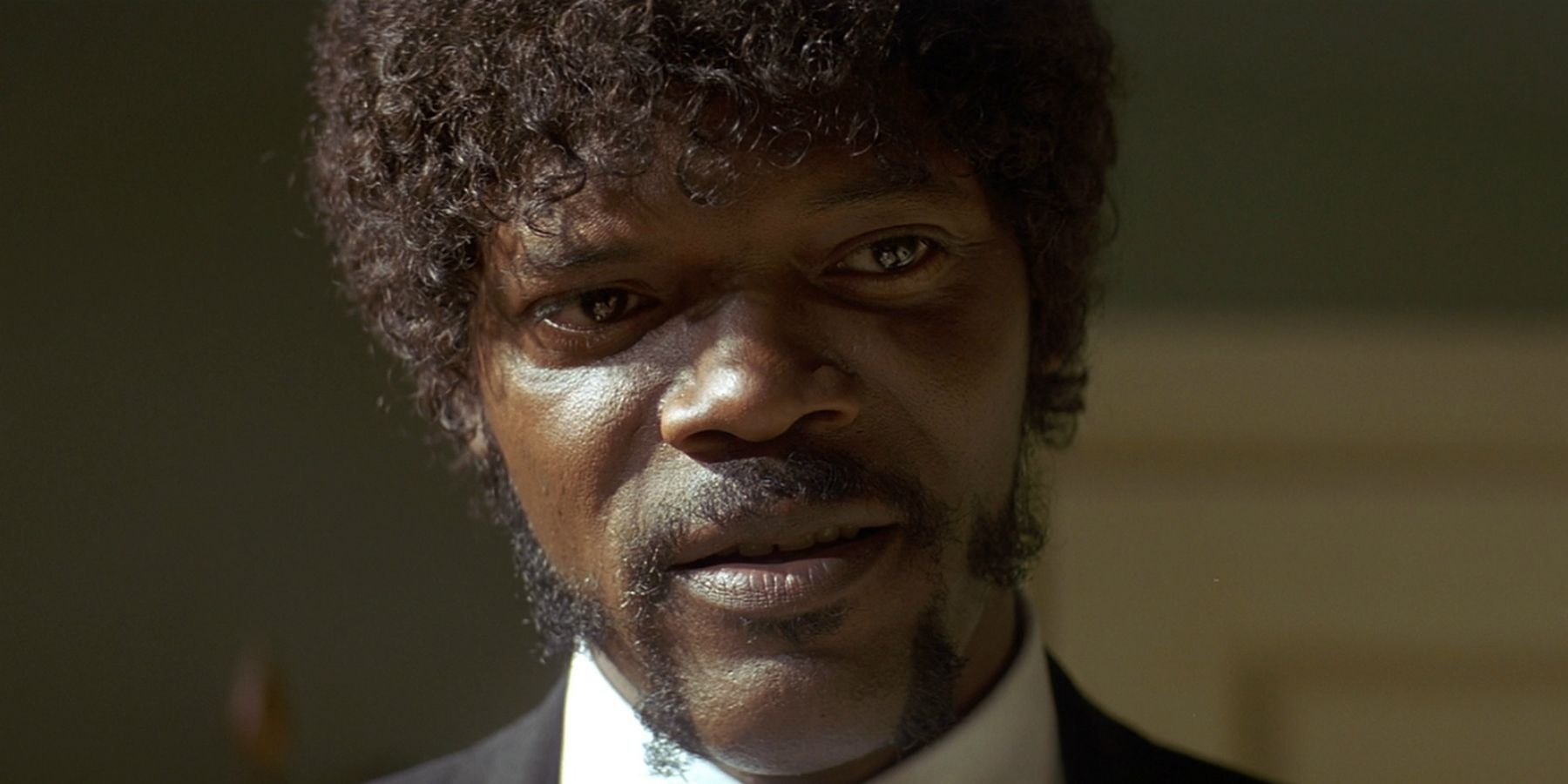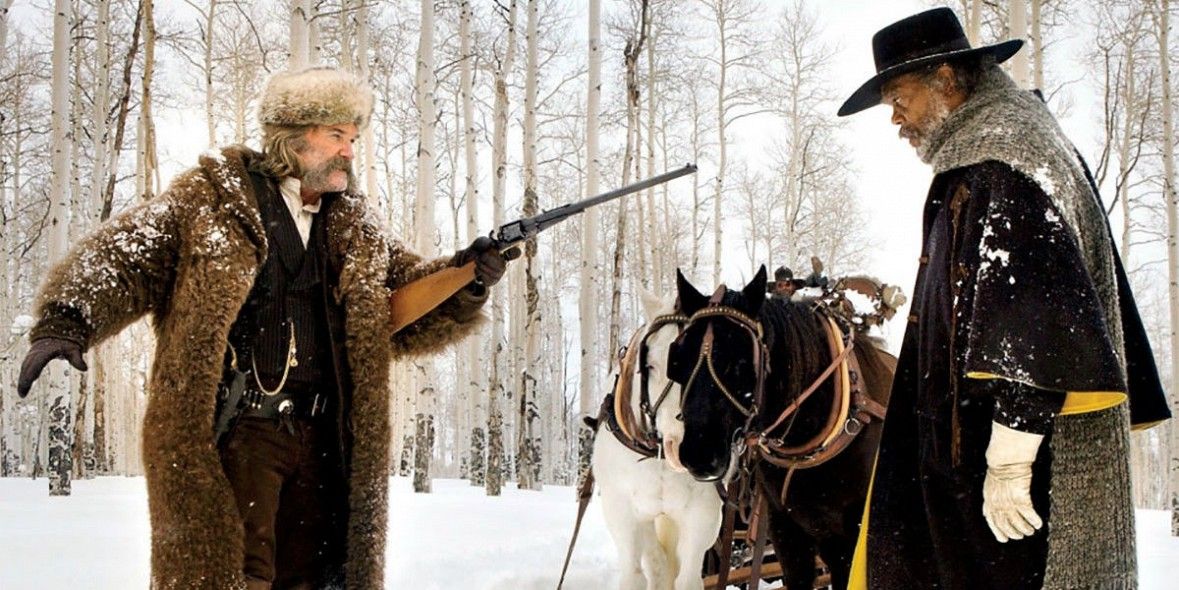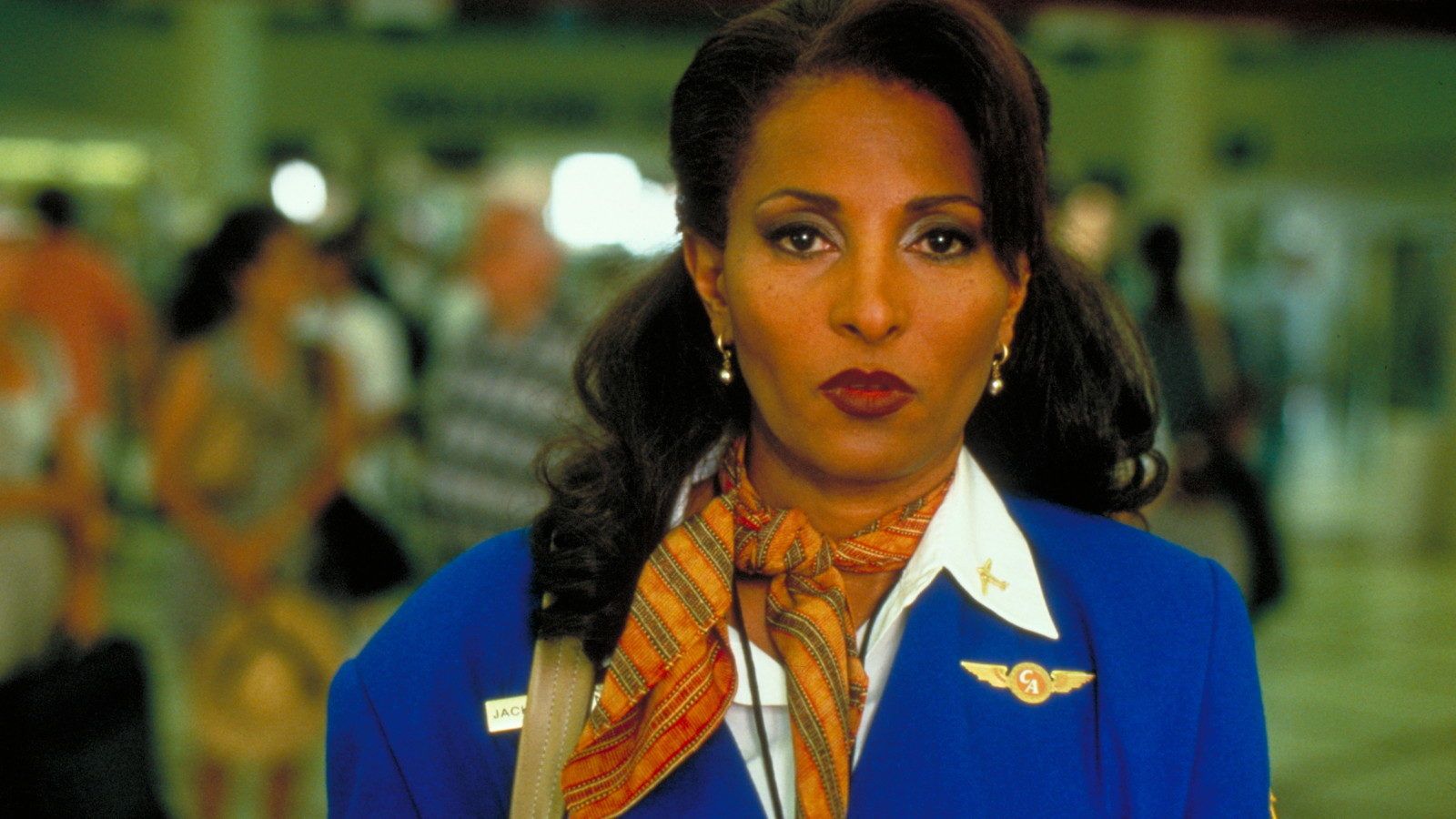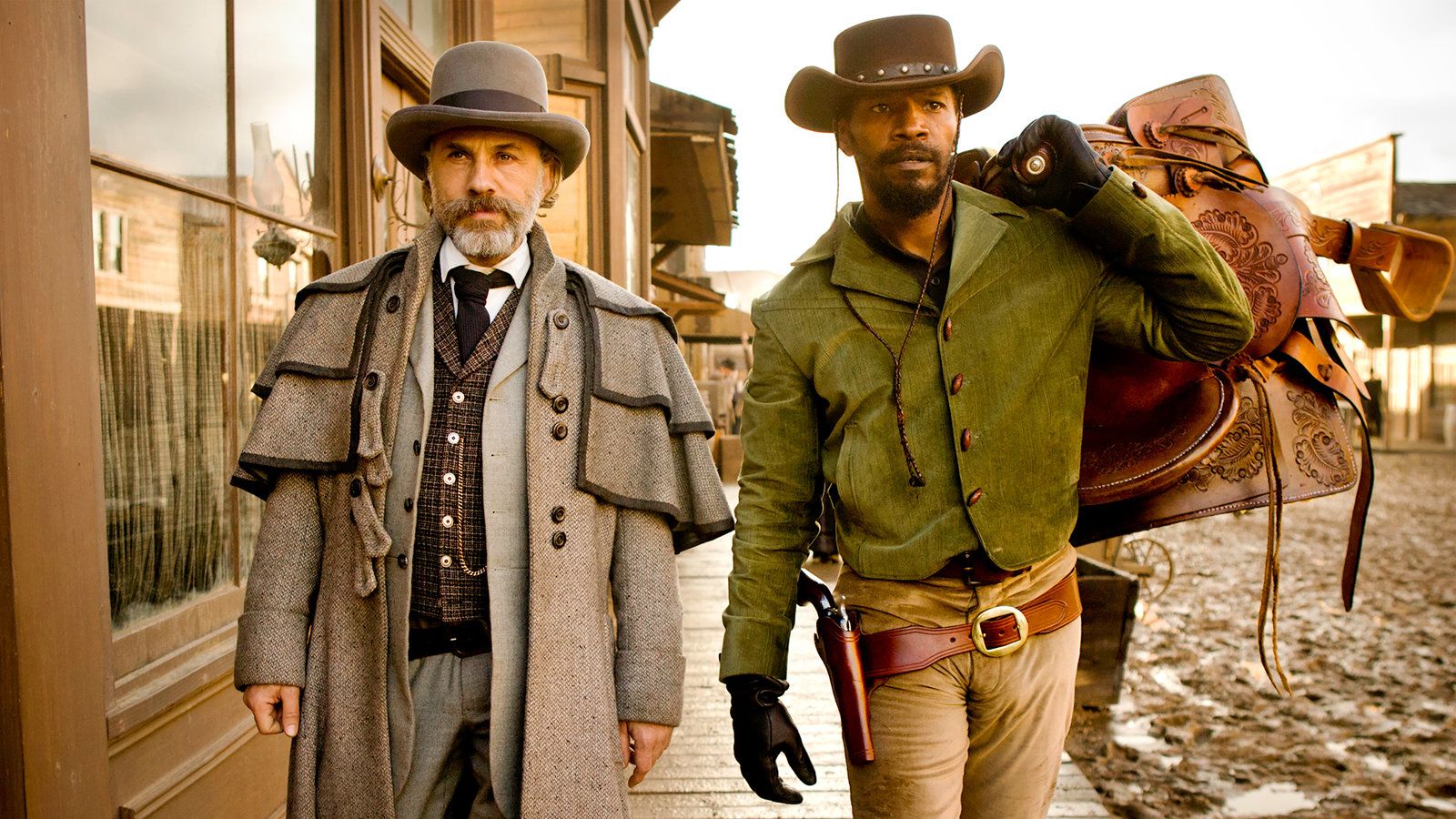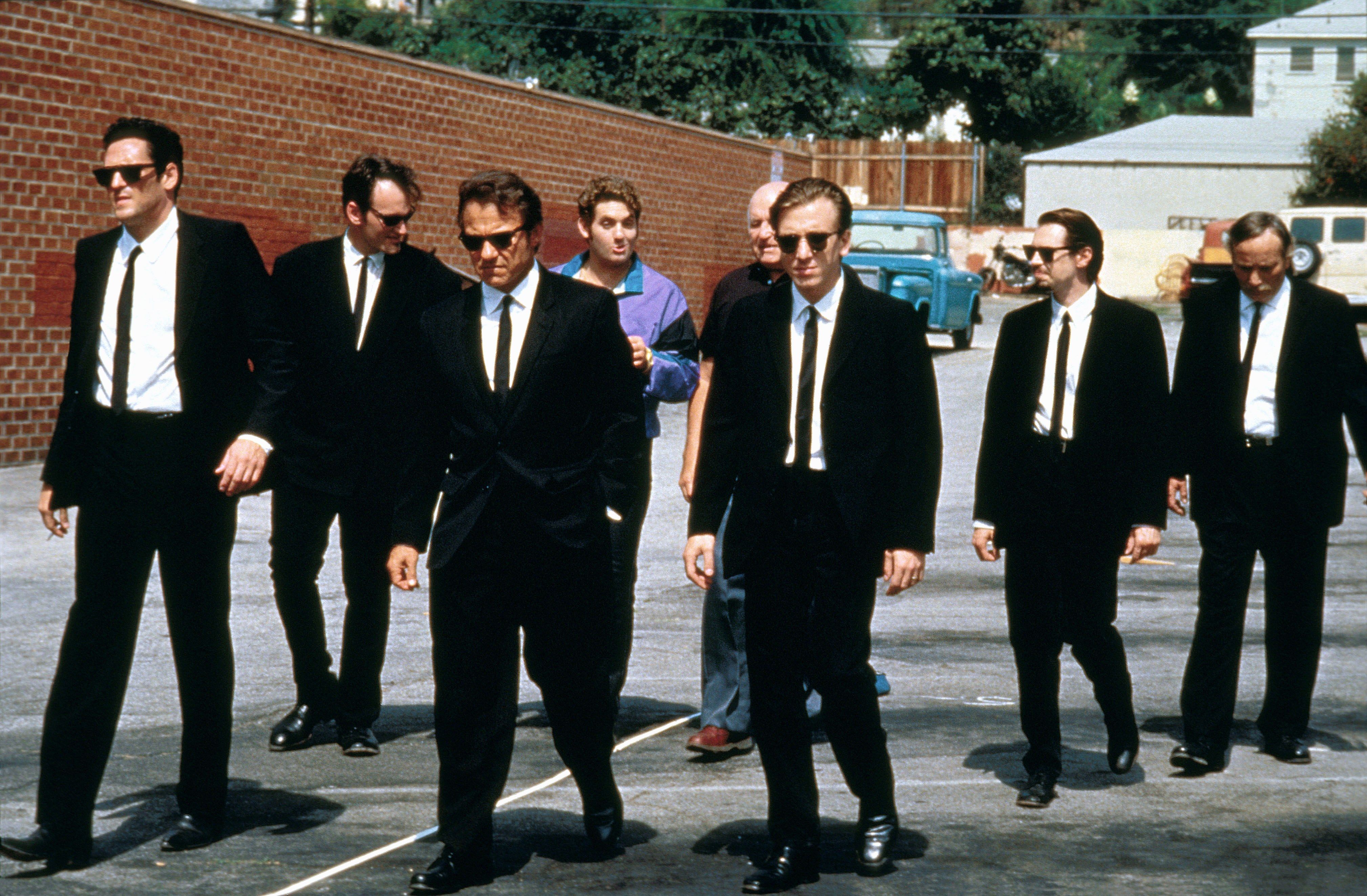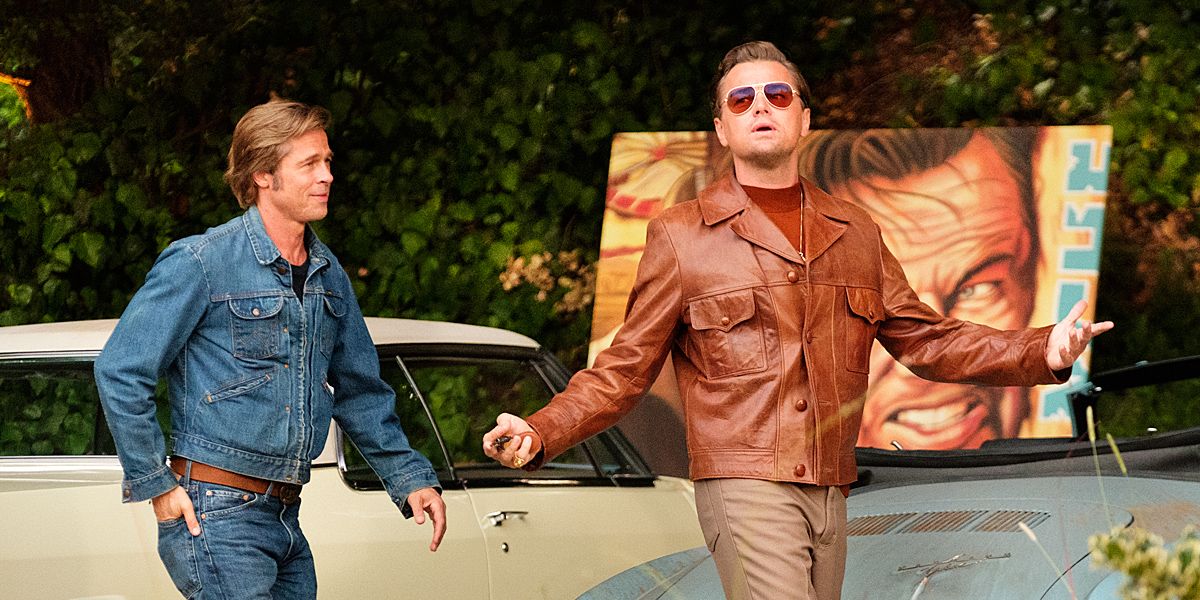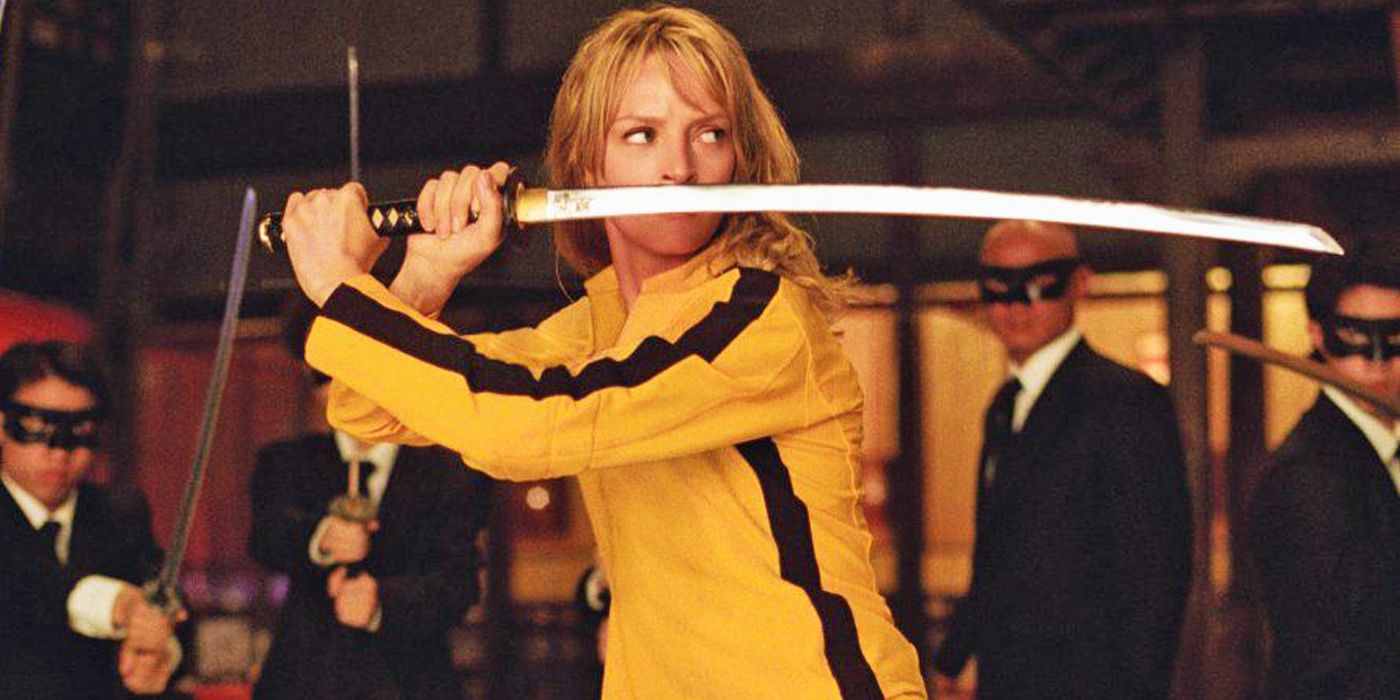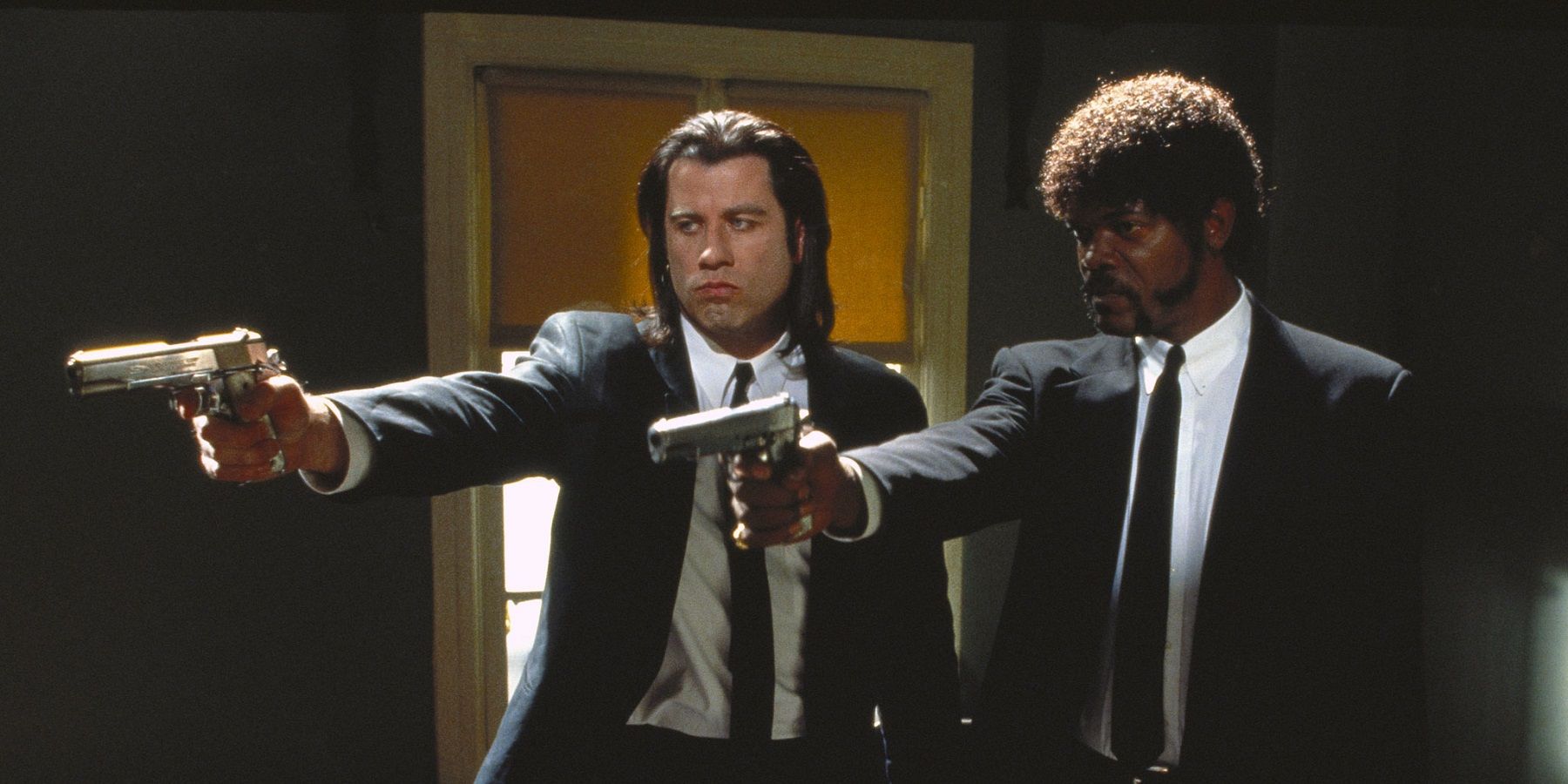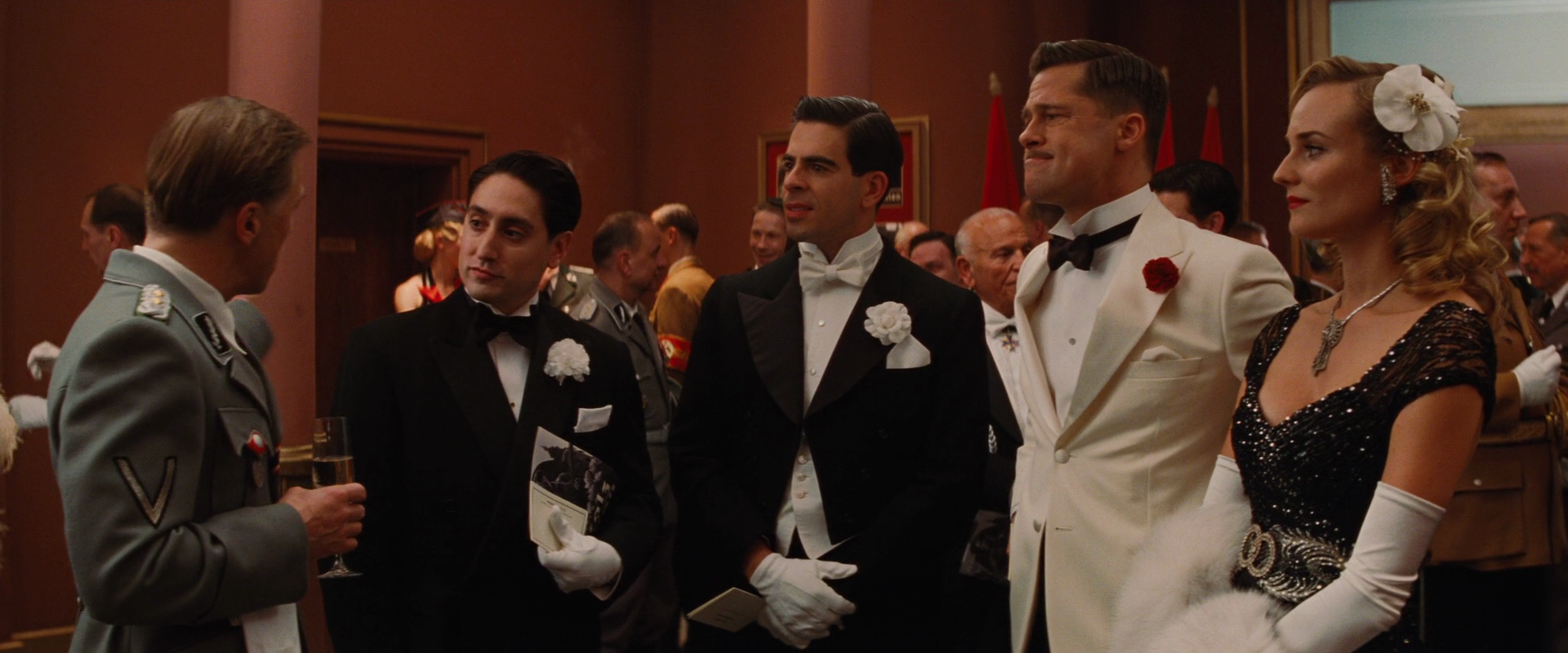Quentin Tarantino's ninth film, Once Upon a Time... in Hollywood, just opened in theaters. He keeps saying that his tenth film will be his last, though what his tenth film will be (A Kill Bill sequel? A Star Trek film? An adaptation of the Django vs. Zorro comic?) is uncertain at this time.
To celebrate the opening of his latest film, we've decided to look back at Tarantino's filmography thus far, ranking the nine features he's written and directed from worst to best. This list does not include films he wrote but didn't direct (True Romance, Natural Born Killers, From Dusk 'til Dawn), nor does it include films he only directed segments of (Four Rooms, Sin City).
DEATH PROOF
You could argue that Death Proof, Tarantino's half of the 2007 Grindhouse double feature, is an extremely successful piece of filmmaking in that it achieves exactly what it wants to achieve. Unlike Robert Rodriguez's Grindhouse entry Planet Terror, which approached the '70s exploitation genre by creating a film based on just the entertaining parts, Death Proof sought to recreate exploitation films as most actually were: Generally boring with just enough moments of bonkers action to make an awesome trailer.
The action chase scene that ends the film, in which a group of stuntwomen get their revenge on the serial killer Stuntman Mike, is utterly badass. The rest of the film, with its shifting cast of characters, meandering dialogue and hyper-indulgent foot shots, is a lot less enjoyable, even if it's a faithful recreation of a style.
THE HATEFUL EIGHT
By far the darkest Tarantino film, The Hateful Eight might be the director's most politically insightful feature. As a vision of the bigotry and lies at the heart of the American experience, it plays even more meaningfully today than it did in 2015. It's a film that remains fascinating to think about, but not the most pleasant to rewatch.
Running around three hours (the specific runtimes vary whether you're watching the 70mm roadshow prints, the standard release, or the Netflix "miniseries" cut), this is the Tarantino movie that could have most used some additional editing. The locked room mystery story is reminiscent of Reservoir Dogs, but Dogs told its story in half the time and was all the more consistently suspenseful for it.
JACKIE BROWN
Jackie Brown remains the biggest outlier in Tarantino's filmography. It's the only adaptation he's made thus far (of the Elmore Leonard novel Rum Punch), the most stylistically restrained and the least graphically violent. Tarantino himself has described it as his "old man movie" (though Once Upon a Time in Hollywood might now challenge it for that title).
If you're not a fan of Tarantino movies, there's a good chance this is your favorite one. It's an entertaining thriller with some great performances by Pam Grier, Samuel L. Jackson and Robert Forster. Don't go in expecting the craziness of a Pulp Fiction and you'll have a good time.
DJANGO UNCHAINED
Tarantino's biggest box office hit of all time, 2012's Django Unchained won the auteur his second Oscar for screenwriting as well as Christoph Waltz's second Supporting Actor award. Doing a spaghetti Western take on the horrors of American slavery naturally attracted controversy, but for every person who found it off-putting, many more found it a cathartic confrontation with our country's greatest sins.
Django might be the most careful Tarantino film when it comes to its use of violence, making the violence of slavery nearly unwatchable while making the revenge action stylized and exciting. Jaime Fox is good in the title role, though the supporting cast (Waltz's Dr. Schultz, Leonardo DiCaprio's diabolical Calvin Candie and Samuel L. Jackson's challenging performance as the self-loathing slave Stephen) outshines the star.
RESERVOIR DOGS
The film that launched Tarantino's career, Reservoir Dogs announces the arrival of a unique cinematic voice from its very first scene. Watching a bunch of gangsters debate the meaning of Madonna's "Like a Virgin" is as perfect an opening to set the tone as any; it's crude and irreverent but also very human, utilizing pop culture small talk as a means of showcasing the parts of life other genre films wouldn't focus on.
Not much actual violence is seen on-screen in Reservoir Dogs, but the flow of blood and the sadistic tortures just out of frame make for a brutal experience nonetheless. Whereas redemption is possible for the crooks of later Tarantino films, there is none to be found in Reservoir Dogs, which is ultimately a tragedy of toxic masculinity.
ONCE UPON A TIME... IN HOLLYWOOD
Once Upon a Time... in Hollywood, now playing in theaters, is a lot to take in. One part '60s nostalgia fest, one part meditation on fears of obsolescence in changing times, one part horror film about the Manson cult, it's a culmination of everything Tarantino's accomplished as an artist up to this point. Funny, referential, fetishistic, thought-provoking, stunningly detailed, surprising and exhausting, it might be the most "Tarantino" of Tarantino films.
Oddly enough, for most of its runtime it's also the calmest, most relaxed and realistic film Tarantino's ever made, an almost plotless slice of life. Then in its final act, it goes wild, in ways which we dare not spoil. Beyond the big laughs and the daring twist, OUaTiH stands out most for its involving portrayal of the close friendship between has-been actor Rick Dalton (Leonardo DiCaprio) and his cool yet morally questionable stuntman Cliff Booth (Brad Pitt).
KILL BILL
Yes, it was released in two parts, but Tarantino counts it as one film, so we'll also count it as one entry. Kill Bill Volume 1 is all action, Kill Bill Part 2 all story. Together, they form one of the most purely entertaining revenge epics ever made, mixing and mashing together influences ranging from Bruce Lee to anime to Sergio Leone.
It's unfortunate that the narrative's strong girl power drive didn't translate to a safe environment for the actresses behind the scenes. Uma Thurman suffered horrible injuries after Tarantino pressured her to do a driving stunt (Tarantino's apologized and Thurman's forgiven him, but not the producers), and Daryl Hannah was harassed by producer Harvey Weinstein at the film's premiere. While these revelations make Kill Bill's feminist legacy more complicated, as pulp action filmmaking, the two-part epic is still a delight to watch.
PULP FICTION
Pulp Fiction is the Tarantino movie that tends to rank the highest on general "greatest movies of all time" lists, and there's good reason for that. If Reservoir Dogs announced Tarantino as a director to watch in the indie world, Pulp Fiction was the moment where his idiosyncrasies broke out to the mainstream. The '90s were filled with Pulp Fiction imitations. None could live up to the original (though we admit, The Simpsons' "22 Short Films About Springfield" comes close).
So many lines of dialogue from this film are instantly quotable, few of which we can repeat on a SFW website. John Travolta had never been this great before or since as he was as Vincent Vega, and the role of Jules Winnfield has more or less defined Samuel L. Jackson's screen presence. The nonlinear storytelling, eclectic pop culture riffs, bursts of intense violence and ultimate message of redemption make Pulp Fiction worthy of its classic status.
INGLOURIOUS BASTERDS
Time has been kind to Inglourious Basterds. It was already a clear work of genius when it came out 10 years ago, with its masterful sequences of suspense, bold alternate history and an Oscar-winning villainous performance by Christoph Waltz. Today, thematic concerns which once seemed abstract have become more visceral. In as much as you could say this about a film so sadistic, Basterds might be Tarantino's most moral film.
There are so many levels Basterds works on, from a self-aware look at the workings of film as propaganda to an unintentional but nonetheless potent retelling of the Book of Esther. Each of the film's five chapters operates in a slightly different tone, each handled expertly. If any other film ended with the line "This might just be my masterpiece," it would be unbearably smug. With this one, though, you react thinking: "Yeah, it is."

